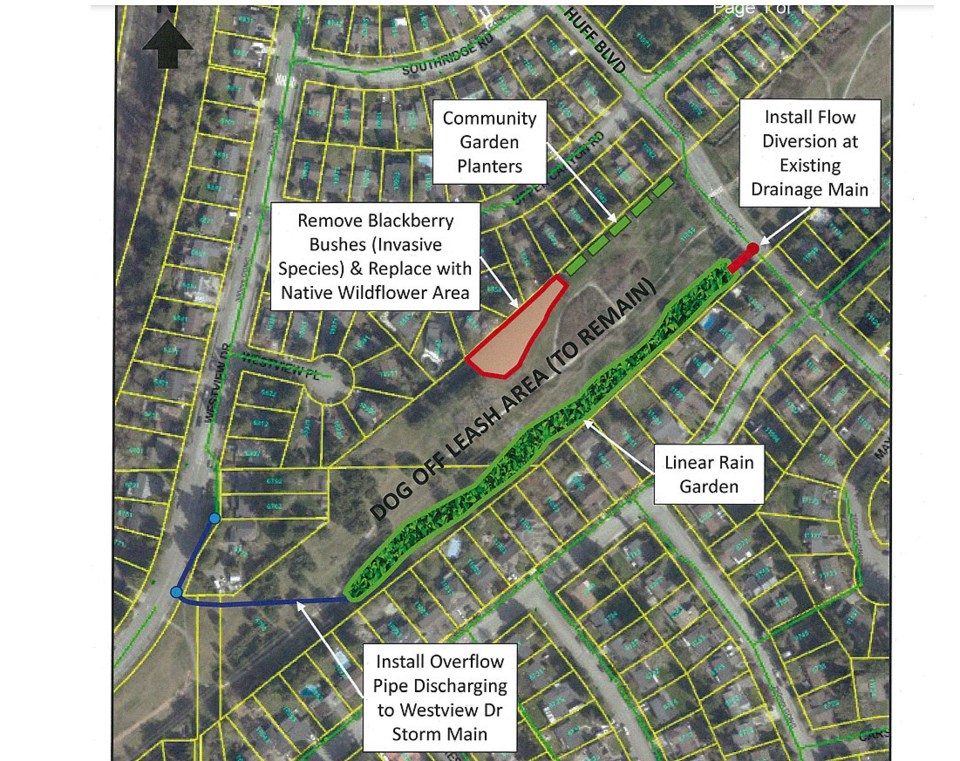The City of Delta is hoping to secure federal dollars for a project at Cougar Creek that would “provide environmental, social and economic benefit to the community.”
City council recently agreed with a staff recommendation to apply for a grant under Infrastructure Canada's Natural Infrastructure Fund Program for the detailed design and construction of the Huff-Hydro corridor linear green infrastructure park within the Cougar Creek watershed
The project has an estimated total cost of around $500,000, with Delta’s share coming in at around $100,000.
Cougar Creek is a salmon-bearing watercourse that flows through mostly developed areas of Surrey and Delta.
Over time, urban development within the watershed, as well as the effects of climate change, has contributed to a significant increase in storm water flows, creek bed erosion and degradation of the creek's water quality that directly impacts fish in the creek.
A staff report notes that to reduce environmental concerns, as well as provide social benefits to the community, what is proposed is green infrastructure in the form of a long lineal rain garden within the Huff-Hydro corridor.
The Huff-Hydro corridor is located south of the Cougar Canyon Environmental Reserve, which is a popular off-leash dog area and walking route.
The proposed concept would ensure the off-leash dog area is retained with the rain garden situated on the southern boundary.
The project includes the installation of community garden planters and a wildflower planting area.
The report adds there would be a direct water quality benefit by filtering runoff that is currently piped directly to Cougar Creek.
The project would provide more groundwater recharge opportunities, promoting biodiversity through the planting of more native plants, including those that support pollinators, and create opportunities for passive recreational activities, the report notes.
Successful projects are to be completed by Dec. 31, 2024. Funding decisions will be made in 2023.




